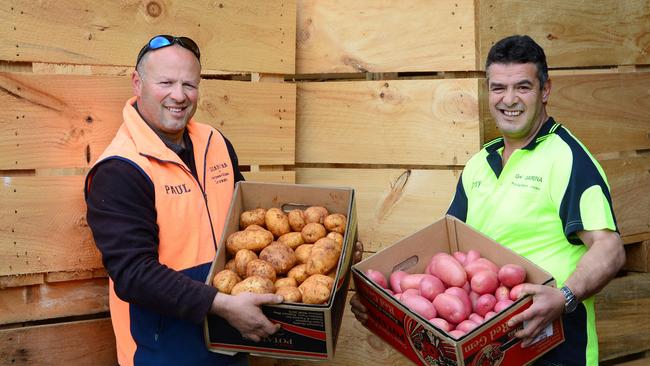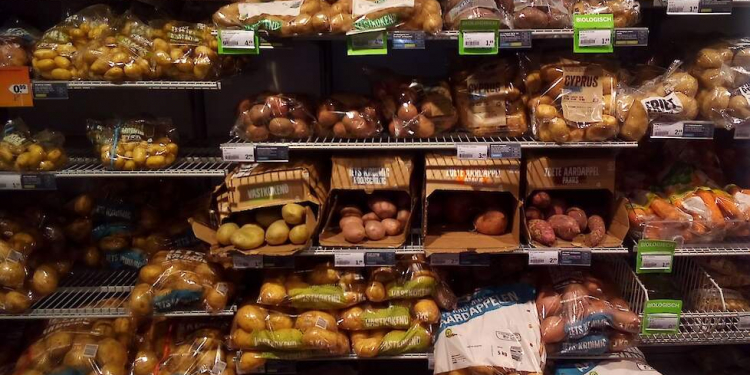The covenant for the cultivation and sale of robust potato varieties is spreading across Europe. The United Kingdom, Belgium and France are also working on or are already working on such a list to promote the cultivation and sale of these varieties, as emerged during a webinar of the Organic Knowledge Week.
Thanks to its bilingualism, Belgium has had two covenants since 2018; for Flanders and Wallonia. The aim of this was to have 100 percent robust varieties (potatoes that are less susceptible to phytophthora) in the field and on the shelves last year. That did not work out, said Paul Verbeke of the Belgian BioForum. In Wallonia, half of the acreage last year consisted of robust varieties and the supply in the shops was also halfway to the intended target.
There is also serious interest in the introduction of robust varieties in Northern France, said Verbeke. “They are also working hard to draw up a list there.”
A list of robust varieties was introduced in the United Kingdom last year. “We were impressed by the Dutch example,” said Hugh Blogg. The British recognize that variety choice plays a key role in making potato cultivation more sustainable and thus the growth of the acreage of organic potatoes. The aim is for the sector to have 100 percent availability of robust varieties by 2026, which is a growth of 20 percent per year. In their research into robust varieties, the British take a broader view than just phytophtora.
Buyer
The use of copper remains a point of discussion in organic farming. In the UK, copper is banned from organic farming, but there’s a chance it could be re-authorized, Blogg said. With the introduction of a broad list of robust varieties, the sector wants to show that reintroduction of copper is not necessary. In Belgium, copper is still allowed in organic potato cultivation.
Dutch supermarkets have successfully committed themselves to getting robust varieties on their shelves through a potato covenant from 2016. However, the domestic organic demand is not big enough to sell everything in the Netherlands.
Foreign demand for robust varieties
Selling robust varieties abroad turns out to be more complicated: the foreign supermarket is not yet asking about this. That is the main reason that a substantial percentage of susceptible organic varieties are still grown in the Netherlands. Because other European countries have now also agreed a covenant, the export opportunities for the robust varieties will increase.

According to the CBS, organic potatoes were grown on 2,054 hectares in the Netherlands in 2020, compared to 1,795 hectares in the previous year. In principle, the acreage of 2,054 hectares is good for more than 70,000 tons of potatoes, 90 percent of which are robust varieties. With such a harvest, 14 percent of the Dutch market can be supplied, Bionext calculates. Currently, 3 percent of the potatoes sold in the supermarket are organically grown.
- By robust potato varieties, Bionext means varieties that are resistant to the late blight Phytophthora and so-called early varieties. According to Bionext, varieties with an early tuber formation, even if they are less resistant, can already give a good yield before a Phytophthora outbreak.
- The brochure is part of the initiative taken by Bionext in 2017 for the ‘Accelerated transition to robust potato varieties’ covenant. This covenant has been signed by 28 parties within the organic potato chain; potato breeders, potato growers and supermarket chains. One of the agreements made within this covenant is that the partners give priority to robust varieties in the production of seed potatoes, during cultivation and on the shelves.
- The aim of the agreement is to gradually scale up to 100 percent of robust organic potatoes by 2020. Both during cultivation and in the store. In 2019, 70 percent of the organically grown potatoes in the Netherlands were robust and 80 percent of the Dutch organic supply consisted of robust varieties on the shelves.








